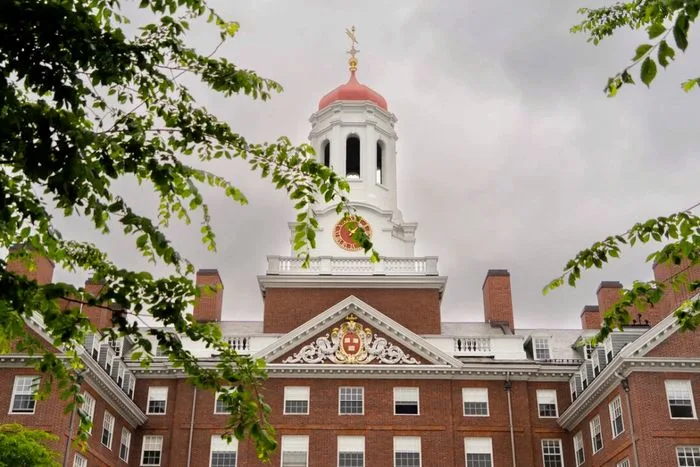By Bill Pan
Harvard University may no longer meet accreditation standards because of how it handled anti-Semitism on campus, the Trump administration warned the Ivy League school’s accreditor on Wednesday.
The departments of Education and Health and Human Services notified the New England Commission of Higher Education that Harvard is in violation of federal anti-discrimination law and is therefore at risk of losing accreditation. They urged the accreditor to work with Harvard to address the issue or revoke its accreditation if the university fails to comply.
The departments pointed to incidents of harassment targeting Jewish and Israeli students during pro-Palestinian protests following the outbreak of the Israel–Hamas war. Harvard’s response, they said, fell short of its legal obligations to keep the campus free of discrimination.
“By allowing anti-Semitic harassment and discrimination to persist unchecked on its campus, Harvard University has failed in its obligation to students, educators, and American taxpayers,” Education Secretary Linda McMahon said in a statement.
“The Department of Education expects the New England Commission of Higher Education to enforce its policies and practices, and to keep the Department fully informed of its efforts to ensure that Harvard is in compliance with federal law and accreditor standards.”
Accreditation is a method for evaluating the quality of higher education institutions, as assessed by independent agencies. If a school loses its accreditation, students may lose access to federal financial aid, and other institutions might not recognize their transfer credits or degrees.
“When an institution—no matter how prestigious—abandons its mission and fails to protect its students, it forfeits the legitimacy that accreditation is designed to uphold,” HHS Secretary Robert F. Kennedy Jr said in the statement.
Harvard and the New England Commission did not respond to requests for comment by publication time.
The accreditor did, however, release a Frequently Asked Questions memo clarifying that the federal government’s findings don’t necessarily mean the university will automatically lose its accreditation.
“The Commission’s policies and procedures, in accord with federal regulation, give institutions up to four years to come into compliance when found by the Commission to be out of compliance, which can be extended for good cause. Institutions in a non-compliance status remain accredited during this period of time,” the accreditor said.
Harvard has previously disputed the allegations, saying that it has taken steps to strengthen anti-discrimination policies, disciplined those who violate them, and promoted “open, respectful dialogue” on the matter.
“Harvard is far from indifferent on this issue and strongly disagrees with the government’s findings,” a spokesperson for the school said in June.
The Trump administration also raised similar concerns with the Middle States Commission on Higher Education, the accrediting body for Columbia University, citing alleged failures to address anti-Semitism on Columbia’s campus.
Columbia became a national focal point for pro-Palestinian protests over Israel’s military response to the Oct. 7, 2023, Hamas terrorist attack. A protest encampment on Columbia’s New York City campus lasted more than 100 days before police were called in to tear it down.
“Accreditors have an enormous public responsibility as gatekeepers of federal student aid,” McMahon said in a statement in June, accusing Columbia’s leadership of acting “with deliberate indifference” toward the harassment of Jewish students during the protests.
Both Harvard and Columbia now face scrutiny that could endanger their access to billions of federal dollars. The administration has already suspended more than $2.4 billion in research funding for Harvard and frozen $400 million for Columbia.
Additionally, the administration has threatened to revoke Harvard’s tax-exempt status and bar international students from studying at the university on F or J visas.





